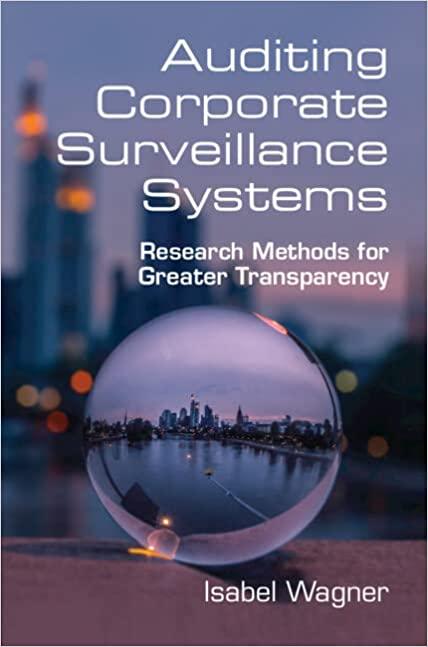Question
Lessee Ltd., a British company that applies IFRSs, leased equipment from Lessor Inc. on January 1, 2007, for a period of three years. Lease payments
Lessee Ltd., a British company that applies IFRSs, leased equipment from Lessor Inc. on January 1, 2007, for a period of three years. Lease payments of $100,000 are due to Lessor Inc. each year. Other expenses (e.g., insurance, taxes, maintenance) are also to be paid by Lessee Ltd. and amount to $2,000 per year. The lessor did not incur any initial direct costs. The lease contains no purchase or renewal options and the equipment reverts back to Lessor Inc. on the expiration of the lease. The remaining useful life of the equipment is four years. The fair value of the equipment at lease inception is $265,000. Lessee Ltd. has guaranteed $20,000 as the residual value at the end of the lease term. The $20,000 represents the expected value of the leased equipment to the lessee at the end of the lease term. The salvage value of the equipment is expected to be $2,000 after the end of its economic life. The lessees incremental borrowing rate is 11 percent (Lessors implicit rate is 10 percent and is calculable by the lessee from the lease agreement).
The junior accountant of Lessee Ltd. analyzed the assets under lease and prepared a computation. The senior accountant of Lessee Ltd. reviewed the analysis and the computation and prepared a separate analysis. As the finance controller, you were given both of the computations to determine the correct accounting treatment. Calculations and journal entries performed by your junior and senior accountant are below.
Present Value of the Lease Obligation
Using the rate implicit in the lease (10 percent), the present value of the guaranteed residual value would be $15,026 ($20,000 0.7513), and the present value of the annual payments would be $248,690 ($100,000 2.4869).
Using the incremental borrowing rate (11 percent), the present value of the guaranteed residual value would be $14,624 ($20,000 0.7312), and the present value of the annual payments would be $244,370 ($100,000 2.4437).
Computations by the junior accountant:
Since the equipment reverts back to Lessor Inc., it is an operating lease.
Entries to be posted in Years 1, 2, and 3:
Dr. Lease expense $100,000
Dr. Insurance expense $2,000
Cr. Cash $102,000
(Operating lease rental paid to Lessor Inc.)
Computations by the senior accountant:
Step 1 Lease classification Case 11-6: Lessee Ltd.
The lease term is for three years. The useful life of the equipment is four years. Since the lease term is for a major part of the useful life of the equipment, it is a finance lease.
Step 2 Computation of the lease asset and obligation
Since the lessees incremental borrowing rate is greater than the lessors implicit rate in the lease, compute the present value of the minimum lease payments using the 11 percent rate.
Present value of the minimum lease payments = $100,000 2.4437 = $244,370.
Step 3 Allocation of payments between interest and lease obligation
Since interest has to be charged on the straight-line method, the following is the allocation of the interest and the reduction in the lease liability.
Year Cash Payment Interest Expense (11%) Reduction in Lease Obligation Balance of Lease Obligation
0 244,370
1 100,000 26,881 73,119 171,251
2 100,000 26,881 73,119 98,131
3 100,000 26,881 73,119 25,012
Journal entry in Year 1 to record the payments:
Dr. Rent expense $2,000
Dr. Interest expense $26,881
Dr. Lease obligation $73,119
Cr. Cash $102,000
REQUIRED:
2. Was the senior accountants analysis correct? Why or why not?
3. How would the answer differ under U.S. GAAP?
Thanks!
Step by Step Solution
There are 3 Steps involved in it
Step: 1

Get Instant Access to Expert-Tailored Solutions
See step-by-step solutions with expert insights and AI powered tools for academic success
Step: 2

Step: 3

Ace Your Homework with AI
Get the answers you need in no time with our AI-driven, step-by-step assistance
Get Started


